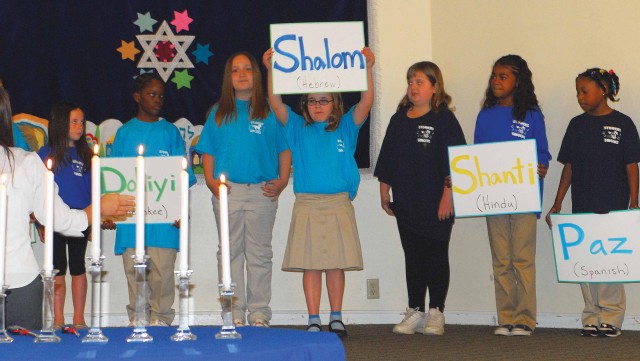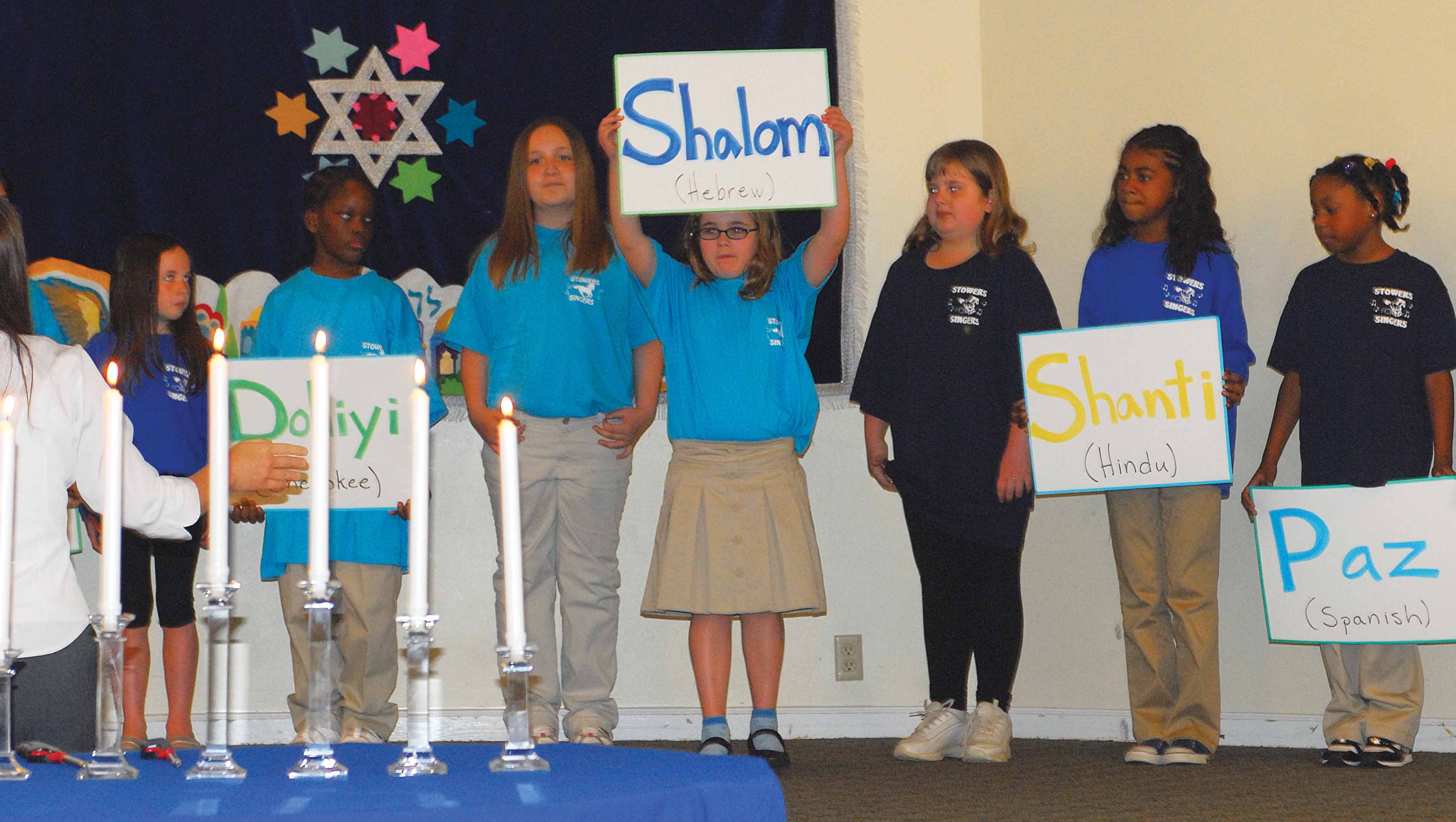FORT BENNING, Ga. - For 94-year-old World War II veteran COL(R) Aaron Cohn, serving as guest speaker for the Days of Remembrance service helped fulfill a promise he made nearly 65 years ago to an Austrian who, like Cohn, was Jewish.
"In May 1945, he held my hand in a tight grasp ... and with a tearful plea he said to me, 'Major Cohn ... promise me you will tell the world what has happened here in this place, and that you will do all within your personal power to make sure this never shall happen in your great country.' I gave him my pledge," Cohn said.
The man was a survivor of the Ebensee, Austria, concentration camp - the camp that Cohn's unit, the 3rd Armored Cavalry Regiment, liberated.
For the past several years, Cohn has kept his promise by sharing his memories of World War II. The Columbus native retold his history of the Holocaust to more than 250 Soldiers and civilians April 15 at Fort Benning's annual Holocaust commemorative service.
His goal, he said, was to pass on his firsthand experiences, so others could learn from the horrors of the Nazi-dictated genocide.
"I shall tell you this: Unless you saw it, smelled the death, saw the cadavers ... it was almost inconceivable for any person to believe that man could be so inhumane and monstrous," Cohn said. "Truly, it was a carnal death camp, structured by a government for the liquidation of its enemies."
"The Holocaust, at least in modern history, is probably the greatest tragedy the world has ever seen," said George Steuber, deputy garrison commander, who attended the service. "Six million Jews and almost a matching number of other ethnic groups is just a massive slaughter. And that's just what people estimate. It's almost impossible to document how many people were killed."
The theme for the commemorative service, "Stories of Freedom: What You Do Matters," underscored the importance of personal responsibility, he said.
"You're always in situations tempted to turn a blind eye," Steuber said. "What could the German guards have done in those prison camps' More importantly, what could those civilians surrounding the camp have done'"
Steuber said his father, a first generation German American who served as an artilleryman in GEN George Patton's Third Army, was shocked that no one near one of the camps seemed to know what was happening inside.
"It was so obvious - the stench from the camps, the absolute walking cadavers," Steuber said. "We can never forget that man is capable of horrendous inhumanity to his fellow man, and we, as the land of the free and home of the brave, should always have a leadership role in making sure those things don't happen again. It can happen anywhere, and we can't shy away from saying this is wrong and doing something about it. We need to always be on our guard."


Social Sharing